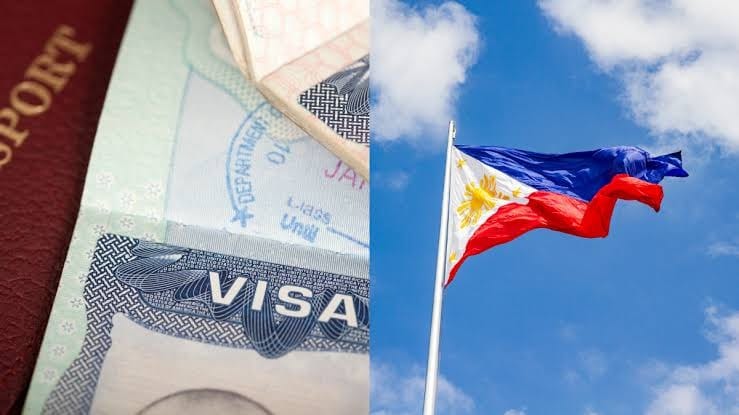Philippines Digital Visa 2025 Launched for Remote Workers
The Philippines Digital Visa has officially been launched in 2025, opening new doors for remote workers worldwide. Under this program, foreign professionals can live in the Philippines while working for overseas employers, enjoying tax benefits, cultural diversity, and affordable living.
This initiative highlights the Philippines’ ambition to become a global hub for digital nomads. With stunning landscapes, affordable living costs, and English-friendly communities, the country is positioning itself as one of Asia’s top destinations for remote workers.
Why the Philippines Digital Visa Matters
The Philippines’ decision to introduce the Philippines Digital Visa reflects the global shift toward remote work. Countries such as Portugal, Thailand, and Indonesia have already created digital nomad programs to attract global talent. Now, the Philippines is joining this movement to boost tourism revenue, diversify its economy, and encourage longer foreign stays.
For digital nomads, the visa offers a legal and secure way to live in the country while continuing to earn from abroad. For the Philippines, it ensures an influx of skilled professionals who will contribute to local economies, particularly in tourist-friendly cities like Cebu, Siargao, and Palawan.
Eligibility Requirements for the Philippines Digital Visa
To qualify for the Philippines Digital Visa, applicants must meet specific eligibility criteria. These requirements are designed to attract genuine digital nomads while protecting local job markets.
- Age Requirement: Applicants must be at least 18 years old.
- Employment Status: Must be employed or contracted by foreign-based companies.
- Income Proof: Must demonstrate a stable foreign income of at least USD $24,000 annually.
- Insurance: Applicants need valid health insurance covering their stay.
- Clean Record: A police clearance or certificate of good conduct is required.
- No Local Work: Visa holders cannot work for Philippine-based employers.
- Reciprocity Rule: Available only to nationals of countries offering similar opportunities to Filipinos.
These guidelines ensure the program attracts remote professionals who can support themselves financially without competing with the local workforce.
Key Features of the Digital Nomad Visa
The Philippines Digital Visa offers several attractive features:
- Initial Stay: 12 months validity, renewable for an additional year.
- Maximum Duration: 2 years total stay.
- Multiple Entry: Holders can freely travel in and out of the country without reapplying.
- Tax Exemption: Foreign-earned income will not be taxed in the Philippines.
- Tourism Boost: Encourages nomads to spend on housing, transport, food, and local experiences.
This makes the Philippines a competitive choice for remote workers looking to balance career and lifestyle.
Application Process for the Philippines Digital Visa
Applying for the Philippines Digital Visa is designed to be user-friendly through the e-Visa platform. Here’s how it works:
- Online Application: Submit details via the government’s e-Visa portal.
- Upload Documents: Proof of employment, income statements, insurance, and police clearance.
- Visa Fee: Estimated between USD $200–$300.
- Processing Time: Expected between six to twelve weeks.
- In-person Verification: May be required at embassies or consulates in certain cases.
This hybrid model ensures transparency and security, while digital processing speeds up approvals.
👉 For official updates and guidelines, applicants should check the Philippines e-Visa portal
.
Opportunities for Remote Workers in the Philippines
The Philippines Digital Visa offers global nomads a chance to enjoy:
- Affordable Living: Lower cost of living compared to Western countries.
- English Proficiency: One of Asia’s largest English-speaking populations.
- Diverse Lifestyle: Beaches, islands, mountains, and urban centers.
- Friendly Communities: Known for hospitality and cultural warmth.
Popular destinations like Siargao (surfing hub), Cebu (urban and coastal blend), and Palawan (world-famous beaches) are expected to attract a high number of digital nomads.
Read More Here: Pakistan Afghan Scholarships 2025 Announced
Challenges Facing Digital Nomads in the Philippines
Despite its benefits, the Philippines Digital Visa program comes with challenges:
- Internet Reliability: While major cities offer stable internet, remote islands may face slow connections.
- Infrastructure Gaps: Some tourist hotspots lack reliable transport and healthcare facilities.
- Weather Risks: Tropical storms and monsoons can disrupt travel and daily work.
- Processing Delays: As the program is new, application processing may initially be slow.
Addressing these challenges will be crucial for the Philippines to remain competitive with other digital nomad destinations.
Comparing the Philippines Digital Visa with Other Countries
When compared to similar programs, the Philippines Digital Visa stands out for affordability and cultural accessibility:
- Portugal: Requires higher income (around €3,040 monthly).
- Thailand: Offers a 10-year visa but with stricter eligibility.
- Indonesia (Bali): Grants tax-free status for offshore income but shorter stay limits.
- Philippines: Middle-ground solution with moderate income requirements and 2-year stay.
This balance makes the Philippines attractive for freelancers, tech workers, and entrepreneurs seeking both affordability and tropical living.
Read More Here: Karachi Urban Flooding Heavy Rain Alert and Safety Measures
Economic Impact of the Philippines Digital Visa
The program is expected to significantly boost:
- Tourism Revenue: Longer stays mean higher spending on local services.
- Job Creation: Growth in hospitality, real estate, and digital services.
- Global Branding: Positions the Philippines as a modern, digital economy.
- Community Development: Nomads spending locally supports small businesses.
If executed successfully, the initiative could transform the Philippines into a leading digital hub in Southeast Asia.
The Future of Remote Work in the Philippines
With the launch of the Philippines Digital Visa, the country has taken a bold step toward embracing global workforce trends. Remote work is no longer temporary—it is shaping the future of employment.
For digital professionals, the Philippines offers not just a visa, but a lifestyle enriched by culture, natural beauty, and affordable living. For the government, it is a strategic move to modernize the economy, expand tourism, and create a globally recognized digital-friendly brand.
Conclusion
The Philippines Digital Visa is more than just a legal document—it is an invitation for global talent to live, work, and thrive in the country. While challenges remain, the benefits outweigh the risks, making the Philippines one of the most exciting new destinations for digital nomads in 2025.
As the program evolves, improvements in infrastructure and connectivity will make it even more attractive. For now, the Philippines has positioned itself on the global map of remote work—bridging lifestyle, leisure, and opportunity.
Read More Here:















